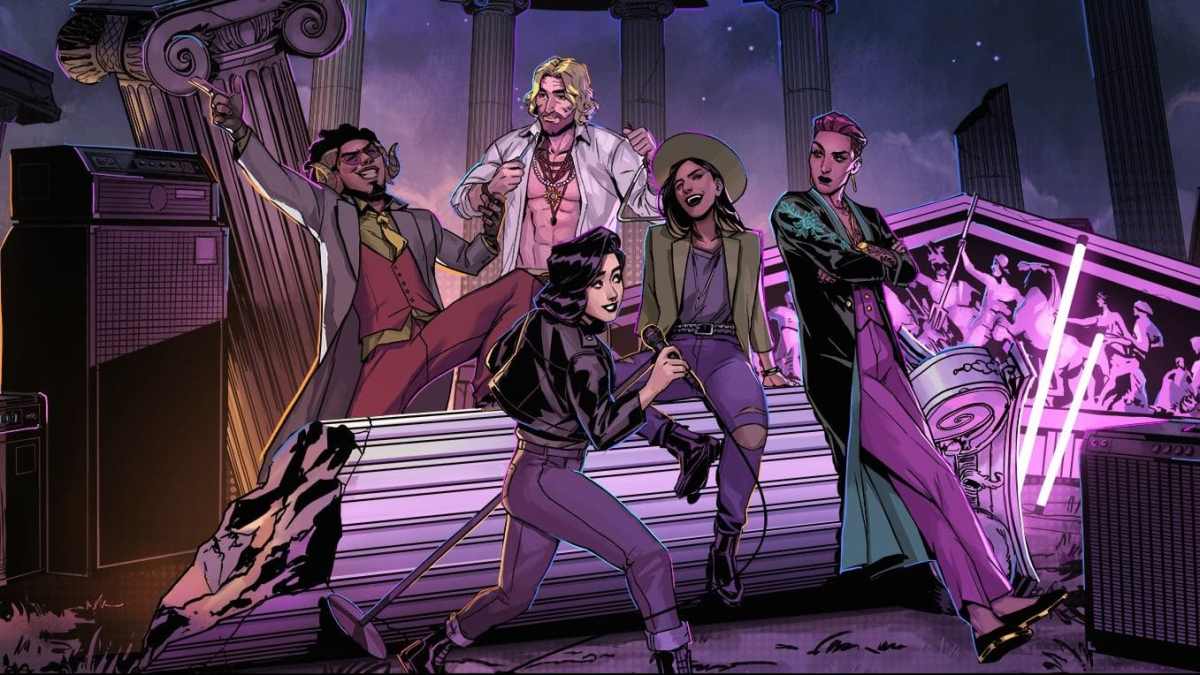From the moment I heard Laura Bailey (The Last of Us Part II) start to sing ‘Adrift’ as protagonist Grace, Stray Gods: The Roleplaying Musical had me, and it wouldn’t let go until I saw the credits roll. Not just because of the strength of the melody or the lyrics, but because it described an underlying feeling that I’ve carried with me, like Grace, since I left university. No matter how many goals I achieve, there’s a voice in the back of my head wondering: What the fuck am I doing with my life? Shouldn’t I have this figured out by now?
♬ Like a boat, lost at sea
With no sails, not a breeze
I am drifting, cold waters
No star to be seen ♬
– Grace
Stray Gods is a film noir-fantasy adventure from Melbourne-based developer Summerfall Studios. It tells a story about Grace, a young woman who is unwittingly swept into a fantasy world hidden in plain sight: a world where the Greek gods (now called the Idols) are real. Grace finds herself in trouble after a chance encounter with a woman named Calliope at her band’s auditions. Mere hours after they’ve met, Grace’s new acquaintance busts through the front door of her apartment and dies in her arms. It turns out Calliope is the Calliope – the Muse from Greek mythology – and when she dies, her eidolon (the essence of her godhood) is passed on to Grace.
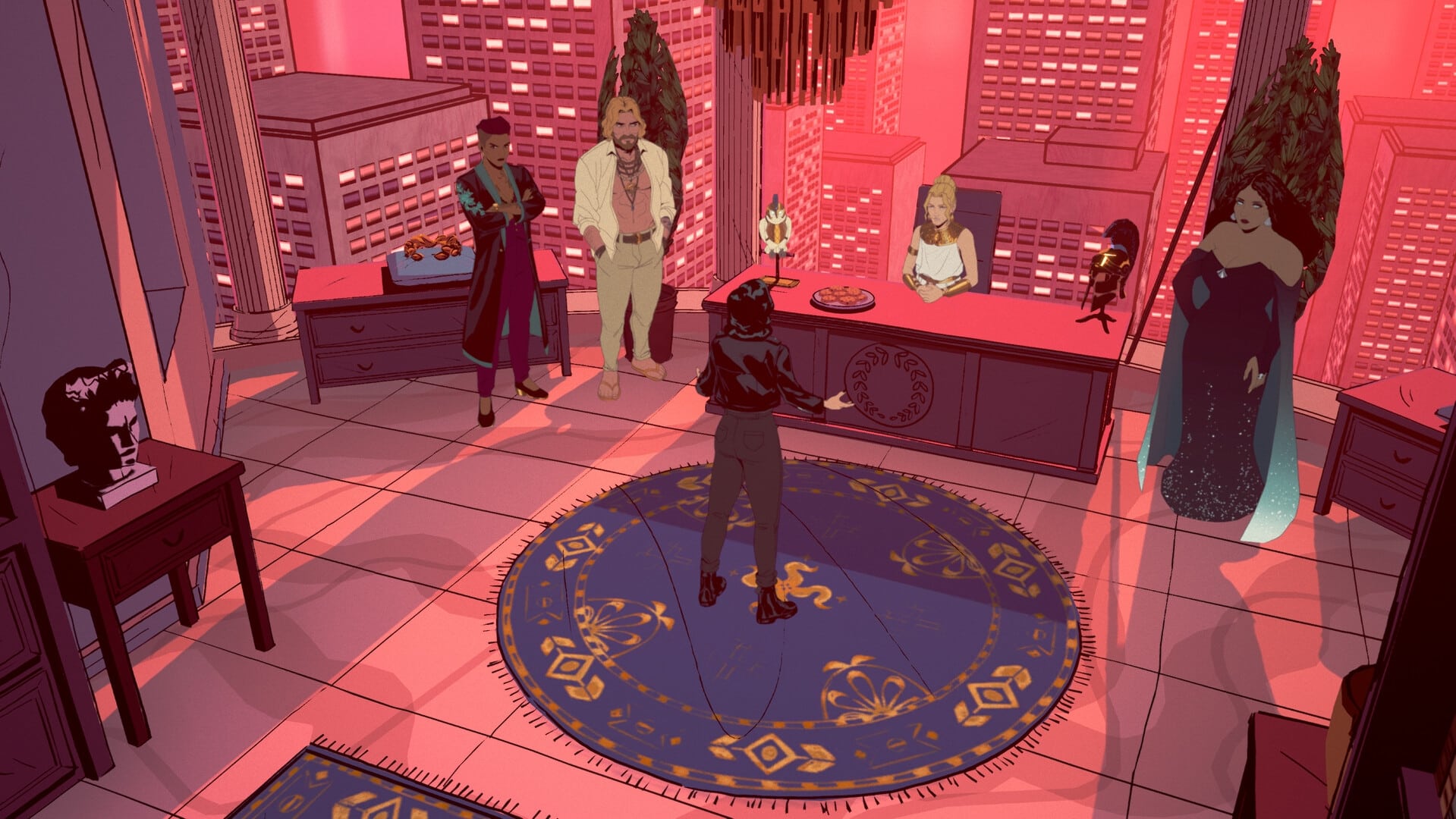
As you’d imagine, the death of an Idol is kind of a big deal. It doesn’t sit right with the Chorus (The Council of the Idols) and Grace is unjustly accused of Calliope’s murder. Athena, a cold and pious leader, is hellbent on sentencing Grace to death. Apollo, the pensive dreamboat who never manages to button up his shirt disagrees, however, swaying the Chorus to give Grace seven days to prove her innocence.
With her insurmountable task and unreasonably short time limit set, Grace must separate a killer’s lies from the truth, and Greek myth from reality by unravelling the mysteries of the Idols: their history, their fall from grace, their complicated relationships and, now, her place among them.
♬ Dow
Dow dow.
Loop it! ♬
– Orpheus
Taking up Calliope’s mantle as the last surviving Muse, Grace can use the power of music to persuade others; to uncover their true feelings by drawing them into her song. Naturally, that means Stray Gods is full of musical numbers and … I’m not a fan of musicals.
I don’t have a passionate hatred for musicals, but I also don’t have the same zest for them that I know many others do. But Stray Gods isn’t just a musical. It transcends that label by bringing in the element of player agency – Grace’s sirenic songs weave between scenes of dialogue, acting as a powerful investigative tool. They require you to choose what direction the song, and therefore the revelations, will go.
When the screen narrows and a short timer bar appears at the bottom, you know that you’re about to start making hard and fast decisions. This design cleverly maintains narrative tension because you never know when the stakes of a conversation will hit their peak, triggering a song.
The swift pacing that follows mimics the feeling of a real confrontation, where you want to say the right things, with an added desire to make the song sound good. (One thing to note, however, is that if the pressure to think and move quickly stresses you out or makes the game less accessible to you in any way, there is the option to turn it off in the settings.)
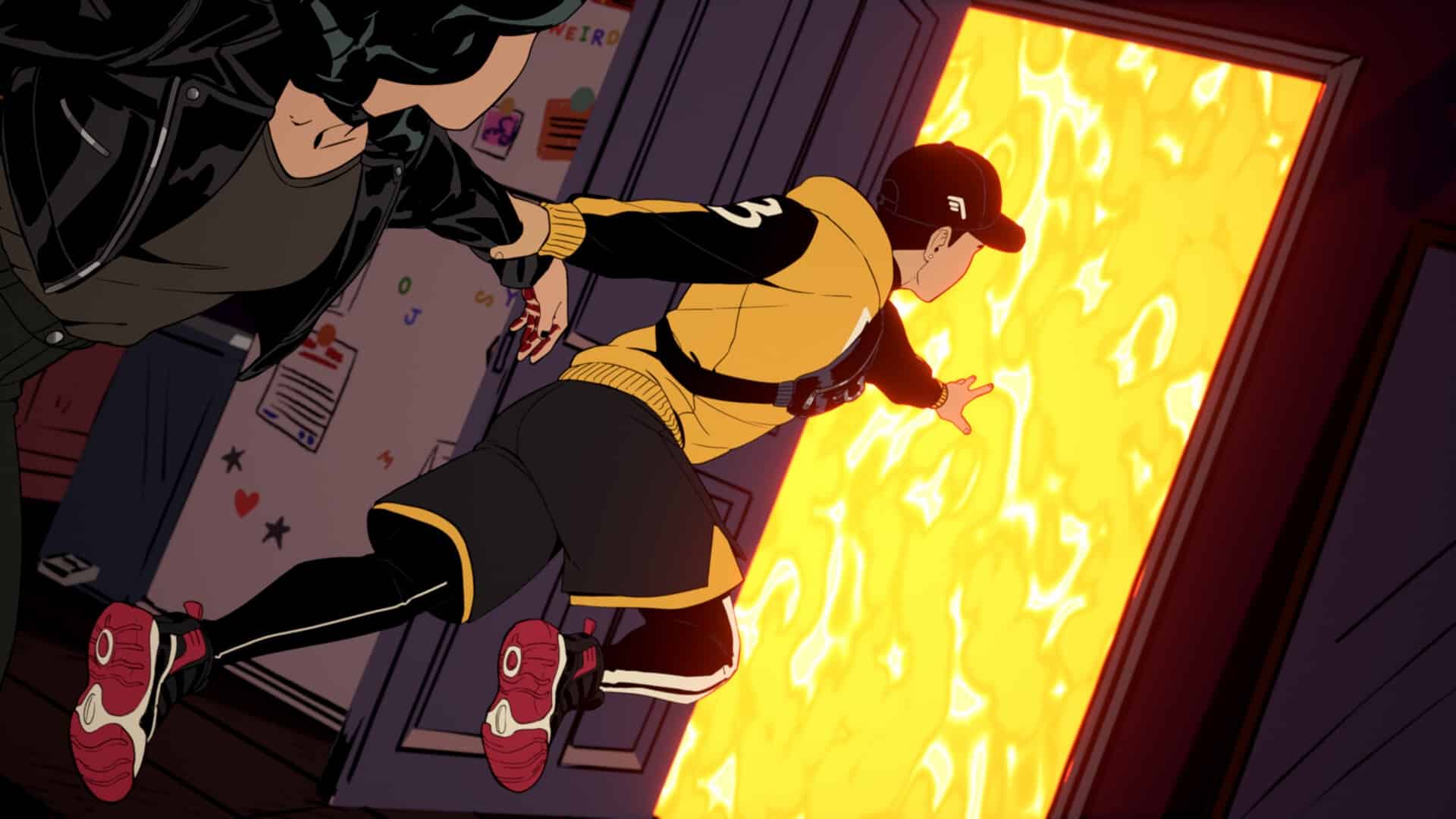
And the way Stray Gods executes on its music and voice is nothing short of brilliant. Everything from the emotional voice acting performances (from a legendary cast) to the ambient score and songwriting from Austin Wintory, Montaigne, and Tripod deserves to be recognised. The visual aesthetics and character design are an undeniable treat, but I found myself constantly aware of just how good the game sounds. There’s almost a rhythmic hum emanating from its shadowy world.
♬ Grace, you know that you’re lost, now
You’ve been given powers you don’t understand
I’m the guy who can help you
All that you hear is at your command! ♬
– Pan
Summerfall Studios has shared that it would be very difficult to have two identical playthroughs in Stray Gods due to the sheer number of variables – and your choices really do matter here. It will take you multiple runs – each around five to eight hours – to experience a fraction of the song variations, explore the romance and friendship possibilities, and use each of the different character traits.
Within the first few minutes of the game, you are given the choice of three traits – charming, kickass or clever – which will influence Grace’s behaviour and add more dialogue options. Grace’s week-long investigation has you talking and singing your way through a lot of sticky situations, so it’s an important decision (though you are allowed to choose responses from any trait during songs).
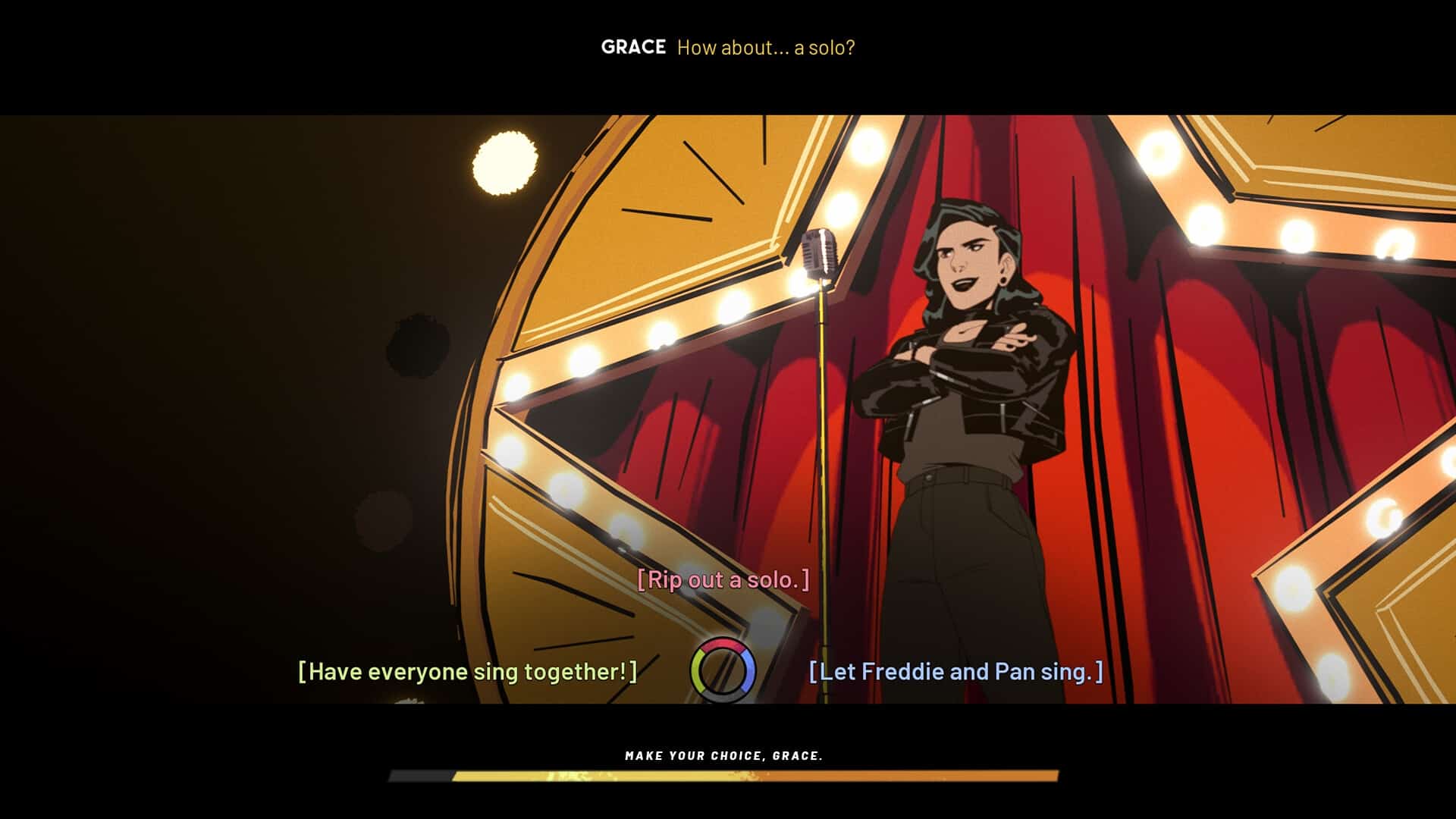
I chose clever for my first playthrough because a version of Grace who is ‘sneakier, smarter, and witty’ is my ideal protagonist. Both in games and real life, I lean towards collecting information and quietly piecing it together, only to reveal my hand confidently when I’m certain that I’ve uncovered the truth. Summerfall executed this perfectly, allowing Grace to make snarky remarks and come to conclusions quicker – though I was still able to distinguish the killer and their motive faster than she was, perhaps in part because it was a little too obvious from the beginning.
There’s no single best approach, as I found charisma and aggression to be useful in other ways in my subsequent playthroughs, yet each one gives the experience a distinctly different feel. Grace is still authentically Grace either way, but choosing the trait that most closely aligns with your personality is rewarding for your first playthrough. There’s nothing worse than playing a narrative-intensive game and feeling your suspension of disbelief falter when none of the options feel authentic to you.
♬ So many years of history
The fights, the highs, the miseries ♬
– ?
The crown jewel of Stray Gods is its rich narrative. Even if I hated every song in the game – which I didn’t, I was pleasantly surprised by the hybridisation of the more traditional musical sound with contemporary genres like hip hop or rock – I would have endured them for this story. Beyond my affinity for mysteries and problem-solving or my anticipation at seeing how the artists would depict familiar characters like the Minotaur or Gorgon, I found myself thinking about the game even when I wasn’t playing it for an unexpected reason.
It was that undercurrent of quiet despair that I mentioned earlier. The quarter-life crisis. I wanted to see how the story ended to get answers to more than one question. If you throw a lost twenty-something into a magical world of gods and destiny, do those feelings just disappear?
Not entirely, no. The gods aren’t called stray for nothing. They’ve stagnated and lost themselves in the thousands of years that they’ve lived. With modern technology, the mortal world has become difficult to hide from: ‘television’, scoffs Athena. Many of the Idols have disappeared and those that remain struggle with loss, depression or a general lack of purpose.
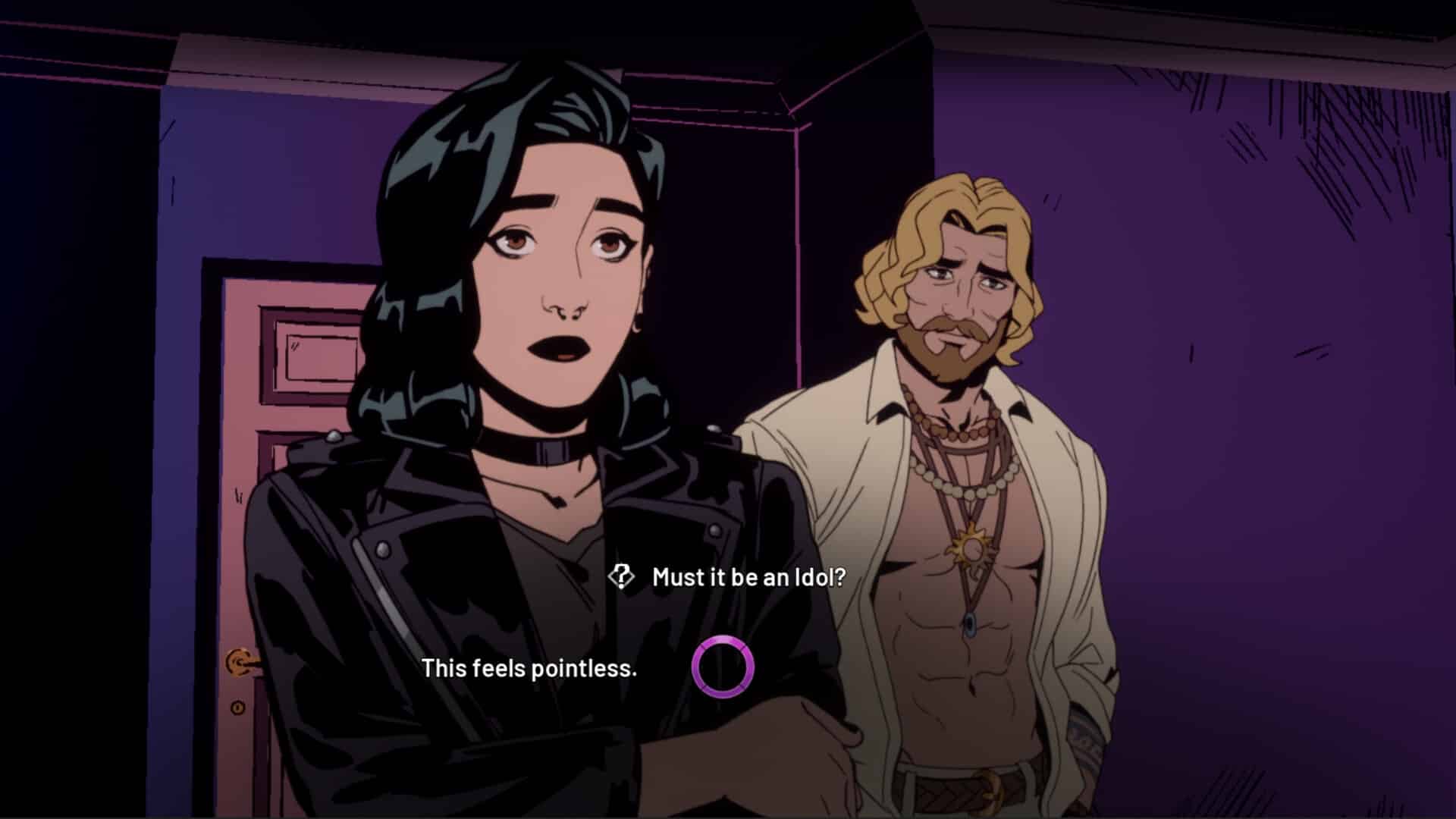
You can’t really blame them. They’ve endured centuries of traumatic events and due to the secrecy of their existence, they’re stuck dealing with the same small circle of Idols for all eternity. It brings up the age-old question about immortality: what is there to live for?
Whether you’re twenty five or one thousand years old, you can still get stuck questioning your existence. If this story is anything to go by, you’ll always feel lost if you keep running from your past and avoiding making decisions about the future. You have to actively break the cycle.
♬ Like a boat, lost at sea
With no sails, not a breeze
I am drifting, cold waters
No star to be seen
In my heart you’ll remain
I do not sail in vain ♬
– Grace
Stray Gods might not have told me how to get over a quarter-life crisis – unless I can turn into a God sometime soon – but it was an enchanting, emotionally affecting journey nonetheless. Diving into the lore, grappling with complicated decisions and then finally seeing the mysteries of modernised mythology unravel before me was a welcome distraction from my usual pattern of pondering my existence. What’s more, the surprising use of contemporary music genres led me to reconsider my reluctance towards musicals entirely. Perhaps there’s more about my mindset to reconsider, given how my time here is much shorter than that of the Idols.
Five Stars: ★★★★★
Stray Gods: The Roleplaying Musical
Platforms: PC, PlayStation 5, PlayStation 4, Xbox Series X/S, Xbox One,
Developer: Summerfall Studios
Publisher: Humble Games
Release Date: 10 August 2023
The PlayStation 5 version of Stray Gods was provided and played for the purposes of this review. GamesHub has affiliate partnerships. These do not influence editorial content. GamesHub may earn a small percentage of commission for products purchased via affiliate links.
